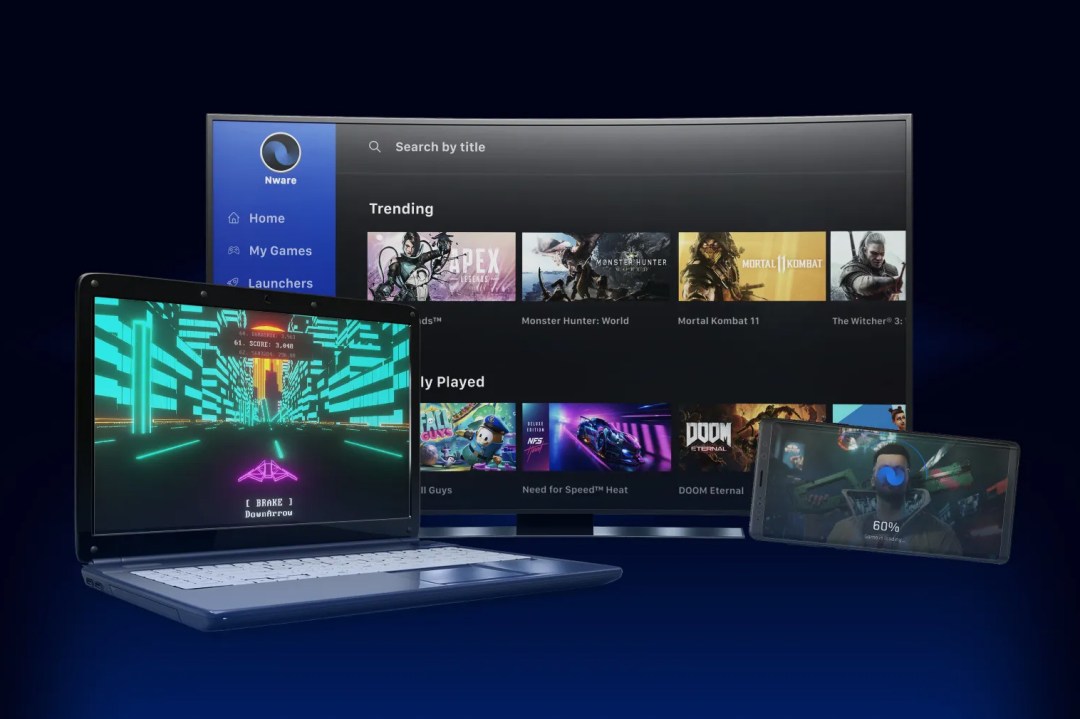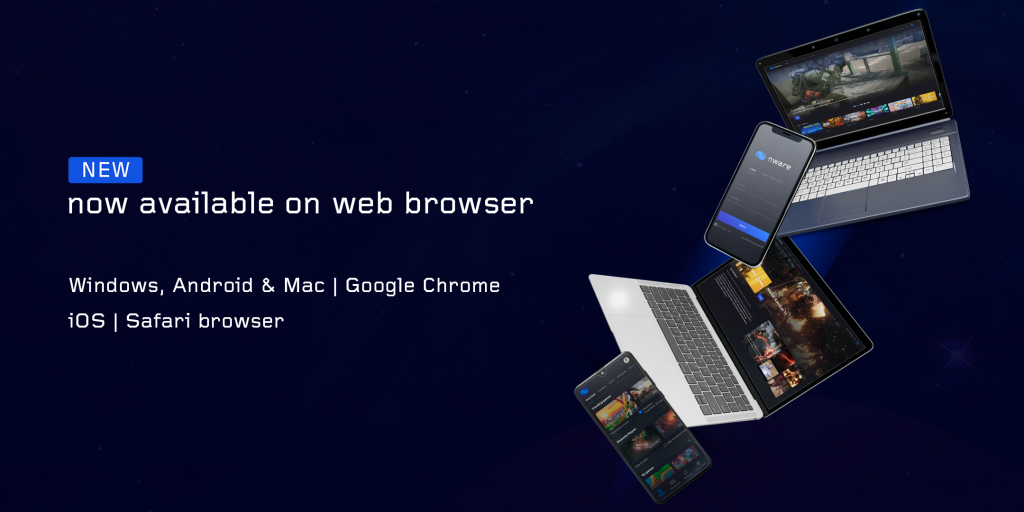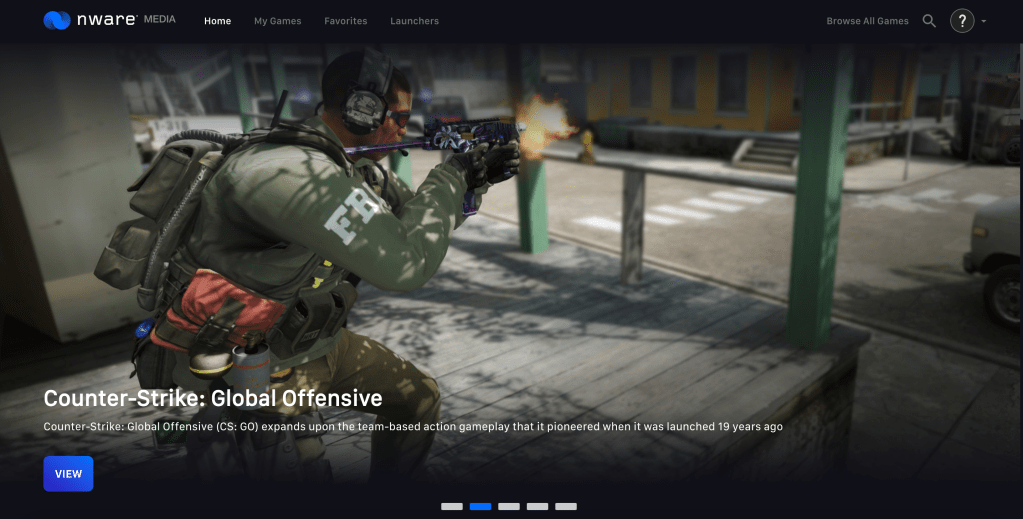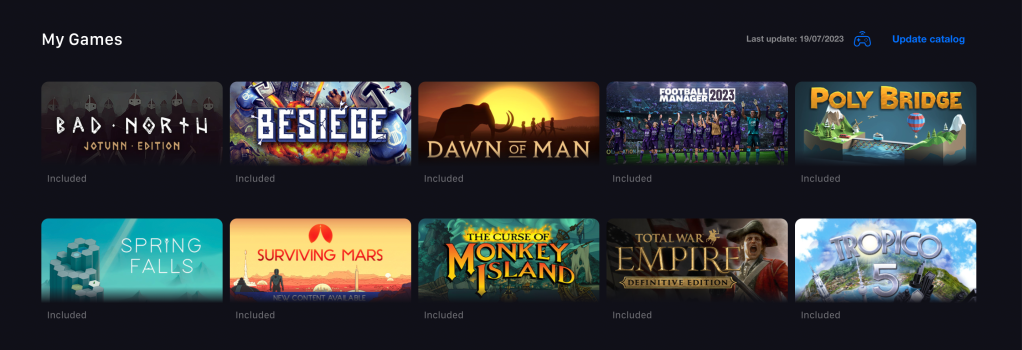Nware hands-on review: cloud gaming competition?
Is the new cloud gaming service worth the fee?

There’s a new(ish) cloud gaming service in town. Nware aims to deliver a cloud-based gaming portal that bypasses expensive consoles and water-cooled PC setups. Everything exists in the cloud – you don’t even need to download an app, now the beta version supports web browser gameplay.
But when the likes of Sony and Microsoft have already staked a claim, can a minnow like Nware compete? We put the service through its paces to find out.
Interface and library: scroll with it

We know the “this is the Netflix of…” phrase is far too overused – but Nware’s interface really does resemble the video streaming giant’s own UI. After pointing our browser towards the Nware website and logging into our account, we were immediately presented with a rolling gallery of game stills, from The Witcher 3 to DOOM. Scroll down, and you’ll find your most recently played titles, and below that plenty more to choose from.
Nware currently holds over 20,000 titles. There’s the classics, such as Call of Duty, Rocket League and League of Legends, once users sync their accounts, and comes packed with Steam, Epic Games, Ubisoft, Roblox and Minecraft built-in.
Chrome and Safari are supported right now; the former covers Mac, Windows and Android devices, while the latter adds iOS support into the mix. Or you can download the native Nware app, which is available for Windows, Android smartphones and tablets, and Android TV. We largely stuck to Google Chrome, and experienced no major frustrations.
Features: PC to Mac

We’ll get the obvious out of the way first: Nware’s out the box offering can’t currently compete with Xbox cloud gaming or Playstation Plus. Should you want access to new titles and exclusives, you’re best looking elsewhere right now, although that may change in time.
What we found most appealing was the ability to sync an account to Steam. As most major new releases still overlook macOS compatibility, this is especially exciting news for Mac users like us. Actually getting games running is a little more complicated, as you’ve got to validate the license through Nware’s client, but once it’s done you’re ready to play.
We experienced some slow load times when first booting up Hearts of Iron IV, a game we’ve long owned but have never had the chance to play on a beaten up MacBook Air. It otherwise handled troop movements across the massive, complex map smoothly.
Gameplay: network dependent
Any cloud gaming experience is only as good as your connection. Frustrating load speeds or muddy input lag could simply make faster-paced titles unplayable. We tested it on our 50MB TalkTalk home broadband connection, which is usually just peachy for playing FPS games via Xbox Cloud Gaming, but weren’t blown away by Nware’s treatment of Destiny 2. Simple actions like running or jumping were painfully jittery. We barely got 15 minutes into a session before giving up in a latency-induced bout of fatigue.
We fared better trading laser guns for bows and arrows with the Windows-only sandbox Medieval Dynasty. The open world game runs smoothly, and doesn’t feel entirely reliant on a rapid internet connection. The graphics aren’t pristine, and there are a few times when gameplay slows, but those gripes aren’t unique to this cloud service.
A mobile data connection isn’t out of the question, as long as you’re playing games that don’t require quick reflexes. If you’ll be stationary for a few hours (and have an unlimited cellular data plan) it should be good for some strategy or RPG adventures like XCOM 2 or Baldur’s Gate 3.
Cost: Steam dream

The good news (for now, at least) is that signing up for an Nware account gets you a 3-day trial to test it out before taking the plunge. After that there are two subscription plans: the Base Plan, for €9/£7.80/$10, and a Premium Plan for €11/£9.55/$12.30, or €100 annually.
The Base Plan lets users access synced games through their Steam catalogue, while Premium adds a Launchers feature which includes Steam, Epic Games, Ubisoft, Roblox and Minecraft titles, all accessible through a remote virtual gaming machines.
It beats Xbox Game Pass, which currently costs $15/£11 a month on the Xbox Game Pass Ultimate tier, and the $18/£13.49 a month PlayStation Plus Premium tier. That said, Xbox Game Pass is almost unbeatable in terms of quality and quantity, while PlayStation Plus has a glut of exclusives. In a crowded field it’s hard for Nware to compete, but cloud access to Steam titles will likely prove the decider for many people.
Nware initial verdict
There’s no question that Nware has heaps of potential. It’s essentially a Steam Deck for those who can’t, or don’t want to, shell out for one.
It’s not quite up to scratch for playing online-only games in its current state, but does open up PC titles for those who don’t have a gaming rig powerful enough to run them. We’re hopeful the browser-based aspect only grows and gets better with time.


